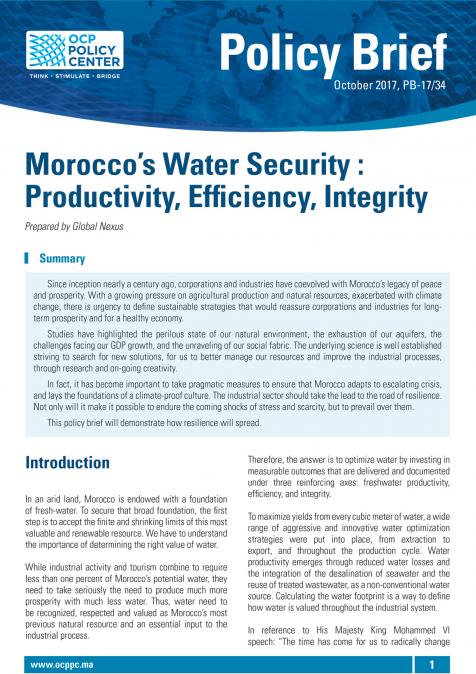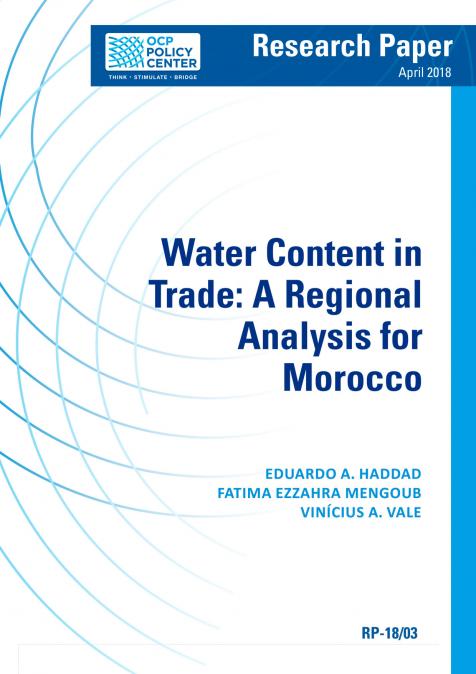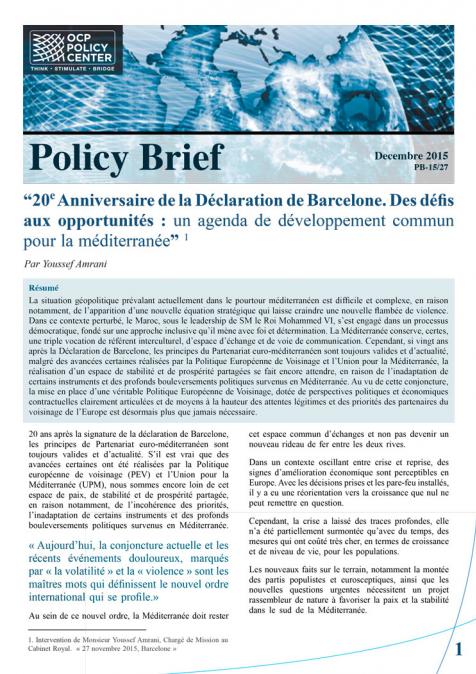Publications /
Policy Brief
Since inception nearly a century ago, corporations and industries have coevolved with Morocco’s legacy of peace and prosperity. With a growing pressure on agricultural production and natural resources, exacerbated with climate change, there is urgency to define sustainable strategies that would reassure corporations and industries for longterm prosperity and for a healthy economy. Studies have highlighted the perilous state of our natural environment, the exhaustion of our aquifers, the challenges facing our GDP growth, and the unraveling of our social fabric. The underlying science is well established striving to search for new solutions, for us to better manage our resources and improve the industrial processes, through research and on-going creativity. In fact, it has become important to take pragmatic measures to ensure that Morocco adapts to escalating crisis, and lays the foundations of a climate-proof culture. The industrial sector should take the lead to the road of resilience. Not only will it make it possible to endure the coming shocks of stress and scarcity, but to prevail over them. This policy brief will demonstrate how resilience will spread.







